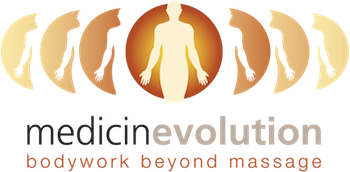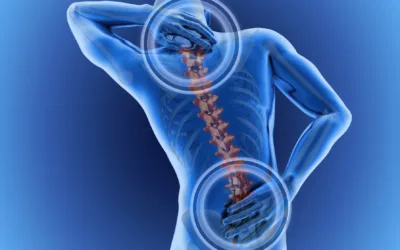Chronic pain is a pervasive and debilitating condition that affects millions of people worldwide, significantly impacting their quality of life. Traditional approaches to pain management often involve the use of medications, physical therapy, and psychological interventions. However, the field of neuroscience has been at the forefront of groundbreaking discoveries and innovations aimed at revolutionizing how we understand and treat chronic pain. In this comprehensive article, we will delve into 10 revolutionary ways neuroscience is tackling chronic pain, exploring cutting-edge research, technological advancements, and promising therapeutic strategies.
1. Neuroplasticity and Rewiring the Brain:
One of the most transformative concepts in neuroscience is neuroplasticity—the brain’s ability to reorganize itself by forming new neural connections throughout life. Researchers are exploring ways to leverage neuroplasticity to alleviate chronic pain by rewiring neural circuits associated with pain perception. Techniques such as neurofeedback, cognitive-behavioral therapy (CBT), and mindfulness meditation have shown promising results in promoting neuroplastic changes, leading to reduced pain intensity and improved pain management skills.
2. Brain Stimulation Therapies:
Advancements in neuromodulation techniques have opened new avenues for treating chronic pain. Transcranial magnetic stimulation (TMS), transcranial direct current stimulation (tDCS), and deep brain stimulation (DBS) are among the innovative approaches being investigated. These therapies involve targeted stimulation of specific brain regions to modulate pain signals and restore balance in neural circuits. While still in the experimental stage, these brain stimulation therapies hold immense potential for providing long-term relief for individuals with chronic pain.
3. Optogenetics: Illuminating the Path to Pain Relief:
Optogenetics is an emerging field that combines optics and genetics to control and monitor activities of individual neurons. Researchers are exploring the application of optogenetics in understanding pain pathways and developing precise interventions. By using light to activate or inhibit specific neurons associated with pain, scientists aim to develop targeted and personalized treatments that minimize side effects and maximize efficacy.
4. Genomic Medicine and Personalized Pain Management:
The field of genomics is shedding light on the genetic factors influencing an individual’s susceptibility to chronic pain. Identifying genetic markers associated with pain sensitivity allows for the development of personalized pain management strategies. Pharmacogenomics, the study of how genes affect a person’s response to drugs, is paving the way for tailored pain medications that are more effective and have fewer adverse effects.
5. Virtual Reality (VR) Therapy: Escaping Pain in a Virtual World:
Virtual reality is not just for gaming; it’s also emerging as a powerful tool in chronic pain management. VR therapy immerses individuals in a computer-generated environment, diverting their attention away from pain signals. This distraction-based approach has shown promise in reducing pain perception and improving overall well-being. From immersive nature scenes to interactive games, virtual reality is providing a novel and engaging way to tackle chronic pain.
6. Neuro-Inflammation: Unraveling the Connection to Chronic Pain:
Mounting evidence suggests a strong link between neuro-inflammation and chronic pain. Neuroscientists are delving into the intricate mechanisms underlying inflammation in the nervous system and its contribution to persistent pain. Targeting neuro-inflammation pathways opens up new possibilities for developing anti-inflammatory drugs specifically tailored to address chronic pain conditions.

7. Mind-Machine Interfaces: Bridging the Gap Between Brain and Technology:
The marriage of neuroscience and technology has given rise to mind-machine interfaces (MMIs), allowing direct communication between the brain and external devices. In the context of chronic pain, MMIs hold the potential to decode neural signals associated with pain and provide real-time feedback or trigger therapeutic interventions. This futuristic approach could revolutionize how we perceive and manage chronic pain, offering a direct line of communication between the brain and cutting-edge technologies.
8. Peripheral Nerve Stimulation:
Beyond central nervous system interventions, researchers are exploring the potential of peripheral nerve stimulation as a targeted approach to alleviate chronic pain. Devices such as spinal cord stimulators and peripheral nerve stimulators deliver electrical impulses to specific nerves, modulating pain signals and providing relief for conditions like neuropathic pain. As technology advances, these devices are becoming more sophisticated and customizable, offering tailored solutions for individuals with diverse chronic pain profiles.
9. Neuro-Imaging and Pain Biomarkers:
Advancements in neuro-imaging techniques, such as functional magnetic resonance imaging (fMRI) and positron emission tomography (PET), are enabling researchers to visualize and quantify brain activity associated with pain. By identifying pain biomarkers, scientists aim to develop objective measures for assessing pain intensity and tailoring treatment approaches. This precision medicine approach holds the promise of optimizing pain management strategies based on individual neurobiological profiles.
10. Neurofeedback and Brain-Computer Interfaces: Empowering Individuals to Regulate Pain:
Neurofeedback, a form of biofeedback that allows individuals to self-regulate brain activity, is gaining traction as a potential tool in chronic pain management. Combined with brain-computer interfaces, neurofeedback empowers individuals to modulate their own neural activity and, in turn, their experience of pain. This personalized and empowering approach aligns with the broader trend of patient-centered care in chronic pain management.
Conclusion:
The landscape of chronic pain management is undergoing a paradigm shift, propelled by groundbreaking discoveries in neuroscience. From harnessing the brain’s inherent plasticity to leveraging cutting-edge technologies, researchers are unveiling innovative ways to understand, assess, and treat chronic pain. As we look to the future, the convergence of neuroscience, technology, and personalized medicine holds the promise of transforming the lives of individuals grappling with the burdens of chronic pain. Embracing these revolutionary approaches, we embark on a journey towards a future where chronic pain is not just managed but truly understood and alleviated.

Exploring the Intersection of Neuroscience and Pain Management: Transform Your Life with MedicinEvolution’s Innovative Approaches!
Are you grappling with the complexities of chronic pain, hindered by neurological discomfort, and seeking relief? MedicinEvolution stands at the forefront of integrating neuroscience and pain management to offer you groundbreaking solutions. By embracing the latest advancements in neuroscience, MedicinEvolution addresses the root causes of your neurological pain, facilitating a more comprehensive and effective healing process. Bid adieu to the constraints of neural imbalances, chronic discomfort, and the repetitive strain that impacts your daily life—as MedicinEvolution navigates the intricate pathways of your nervous system, guiding you towards profound recovery. Their expert techniques are designed to shift you away from the persistent pain and neurological challenges that have been diminishing your quality of life.
If you’re battling with ongoing neural discomfort, stiffness, or the frustrating limitations of chronic pain, MedicinEvolution’s tailored approach, grounded in the principles of neuroscience, is specifically designed to meet your individual needs. Don’t let the challenges of neurological pain define your life’s story—take charge and schedule your consultation with MedicinEvolution today! Embark on a journey with their neuroscience-based pain management strategies and start moving towards a more vibrant, pain-free existence. Your body and mind, liberated from the shackles of pain, will surely express gratitude!





